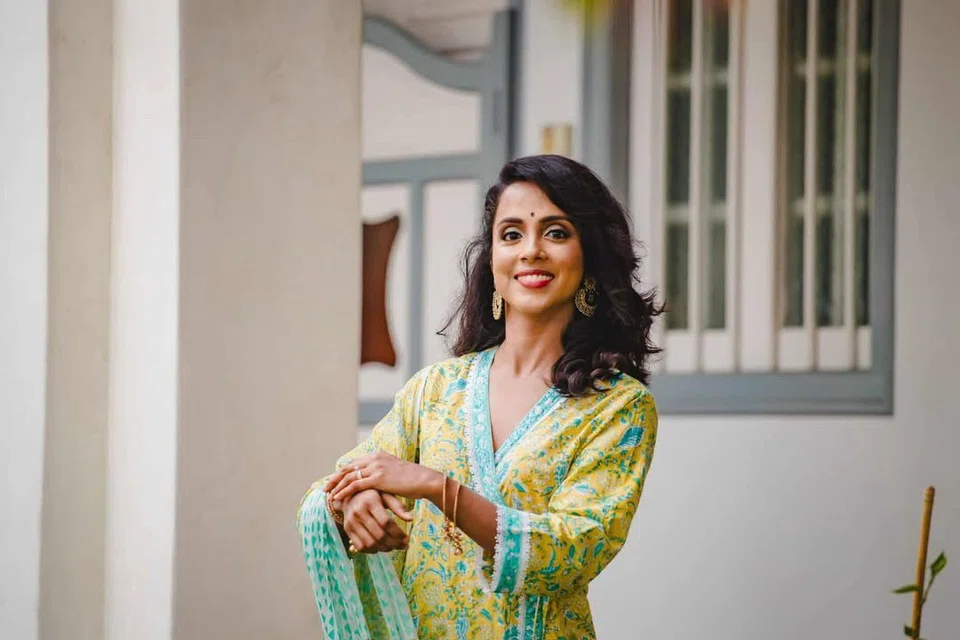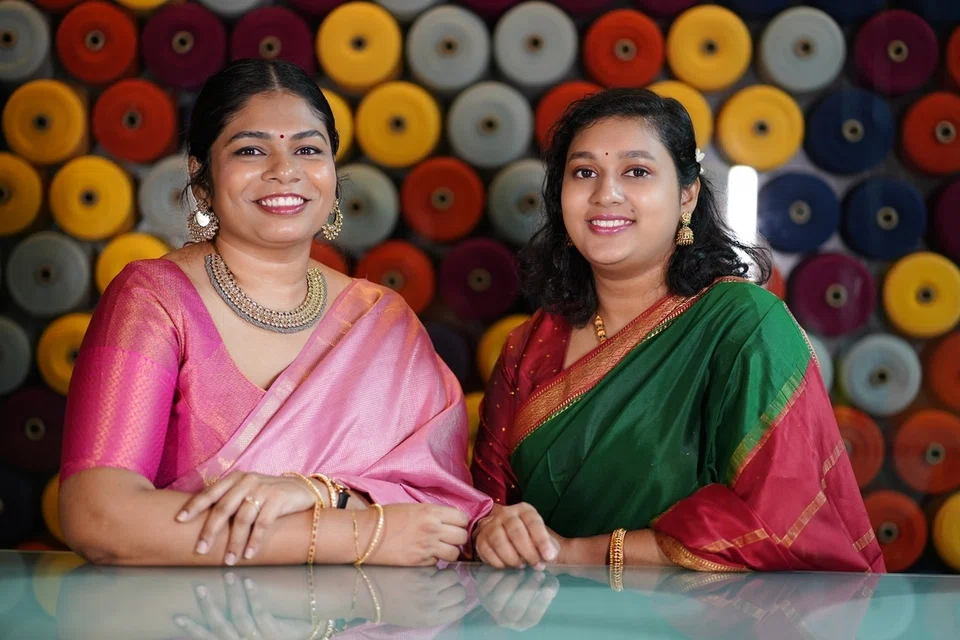Deep into postpartum, sisters Radha Kunasaigran, 36, and Sindhu B, 30, one day faced a closet full of expensive, once-worn saree blouses and traditional clothes that no longer fit them, following the physical changes of childbirth.
This experience sparked an entrepreneurial idea – to upcycle traditional Indian wear and make it sustainable.
“Ethnic wear like saree blouses barely fit after a couple of wears. It can be very frustrating, especially since a lot of money is also spent on tailoring them,” said Ms Radha.
Building on this concept, The Niram Collective, a fashion brand dedicated to giving pre-loved traditional attire a second life, was born on March 11 this year.
They operate through two pioneering schemes – The Niram Closet and Niram Upcycled. In the former, ethnic wear is donated and undergoes a process of curation by the sisters, where they carefully select fabrics that are in mint condition and quality.
These garments are then put up for rental while both Ms Radha and Ms Sindhu manage the full end-to-end process, including fittings, alterations, and maintenance.
“This model helps customers avoid buying clothes they might use only once for festivals or weddings,” explained Ms Sindhu.
Traditional garments of quality have more durability and longevity than one might think, noted Ms Radha.
Niram Upcycled scheme focuses on pre-loved sarees. It transforms them into other ready-to-wear garments available for purchase, such as peplum tops and jackets that can also serve as corporate wear.
This initiative shifts the focus from purchasing only for special occasions to buying only when needed, the sisters said.
“The garment’s use is extended. Only the form changes,” said Ms Sindhu.
“Upcycled traditional clothes are also considerably new clothes,” added Ms Radha.
The movement towards sustainable ethnic wear is also driven by consumer choice. Ms Subashini S K, 35, began purchasing her ethnic wear from India-grown brands committed to sustainability.

“I find particular resonance with companies that align with my values of sustainable, slow fashion,” said Ms Subashini.
Motivated by a desire to promote conscious decisions, even in the “simple choice of daily attire,” she launched Hesha’s, named after her daughter, with her family in 2023.
High-quality pieces made from natural, long-lasting materials and featuring artisan-crafted designs became the foundation of Hesha’s, said Ms Subashini.
“Indian traditional wear is readily available for purchase both online and in stores around Little India. But I do believe that my customers recognise and value the special worth of fabrics made for long-term wear,” she added.
Ms Subashini focuses on importing limited pieces of fabric from Indian brands and reselling them to customers locally through Hesha’s. This helps customers avoid hefty shipping costs and the inaccessibility of international import if they were to purchase it on their own, Ms Subashini noted.
At present, Ms Subashini imports ethnic wear from nine Indian-grown brands, including popular names such as Suta, Chhapa, and AaMe. She also chooses not to import in large quantities and brings in fabrics that appeal to her personally, as well as align with demand.
The concept of sustainability is a relatively new term that has been whispered around the Indian community, Ms Subashini pointed out.
“So far, all of my customers appreciate and welcome my unique sense of style,” she said. “But I also realise there are more of them now who are extremely mindful of their ethnic wear purchases. They buy something that they want to keep wearing in future. And that is exactly what I want to advocate.”



